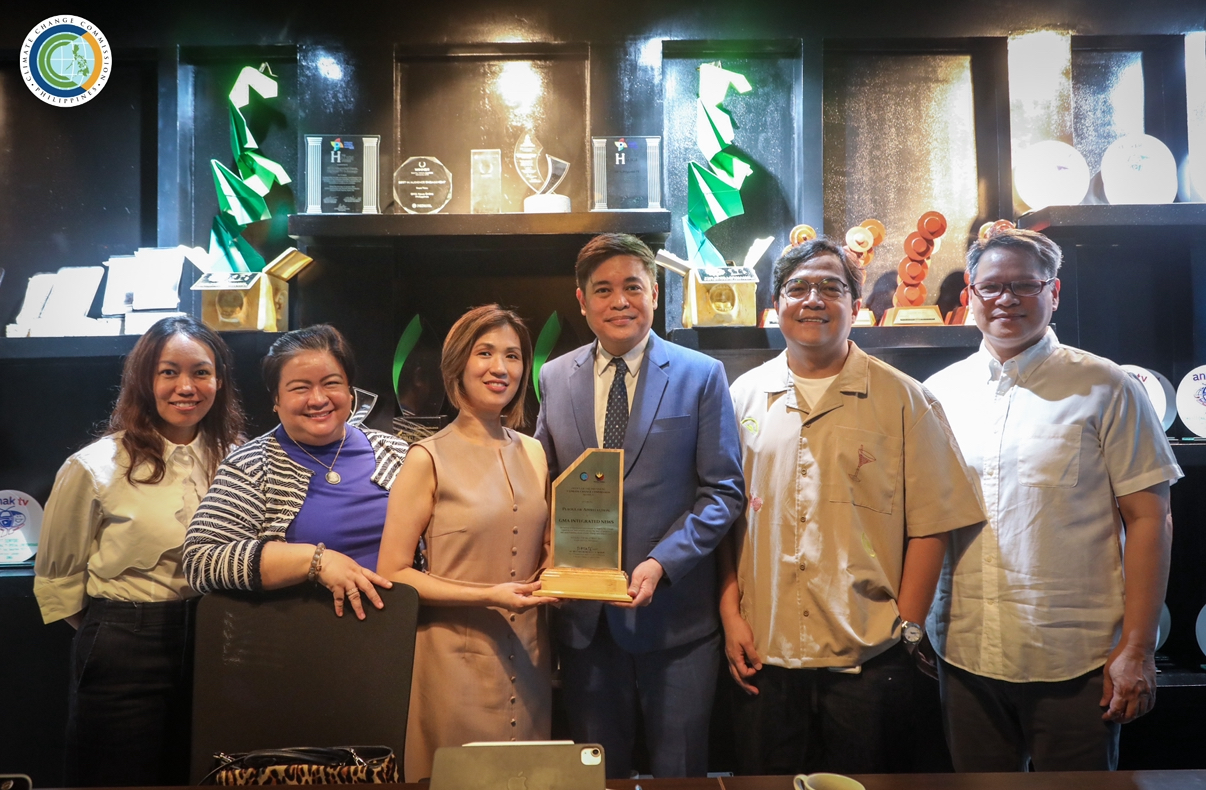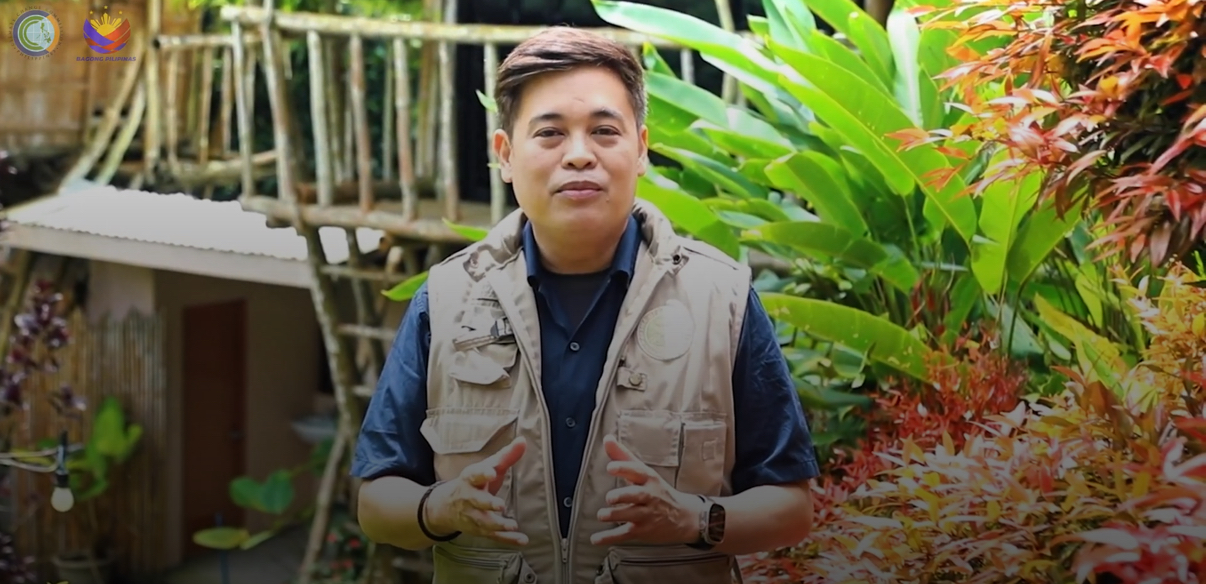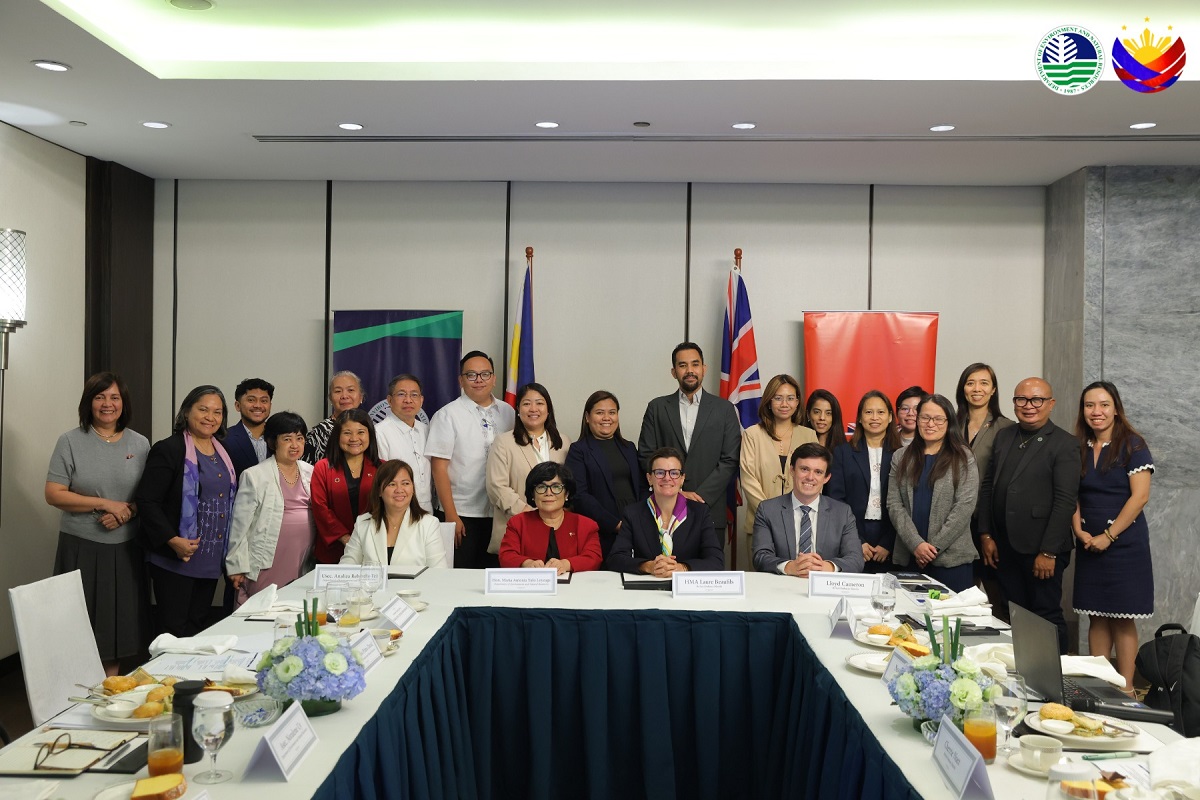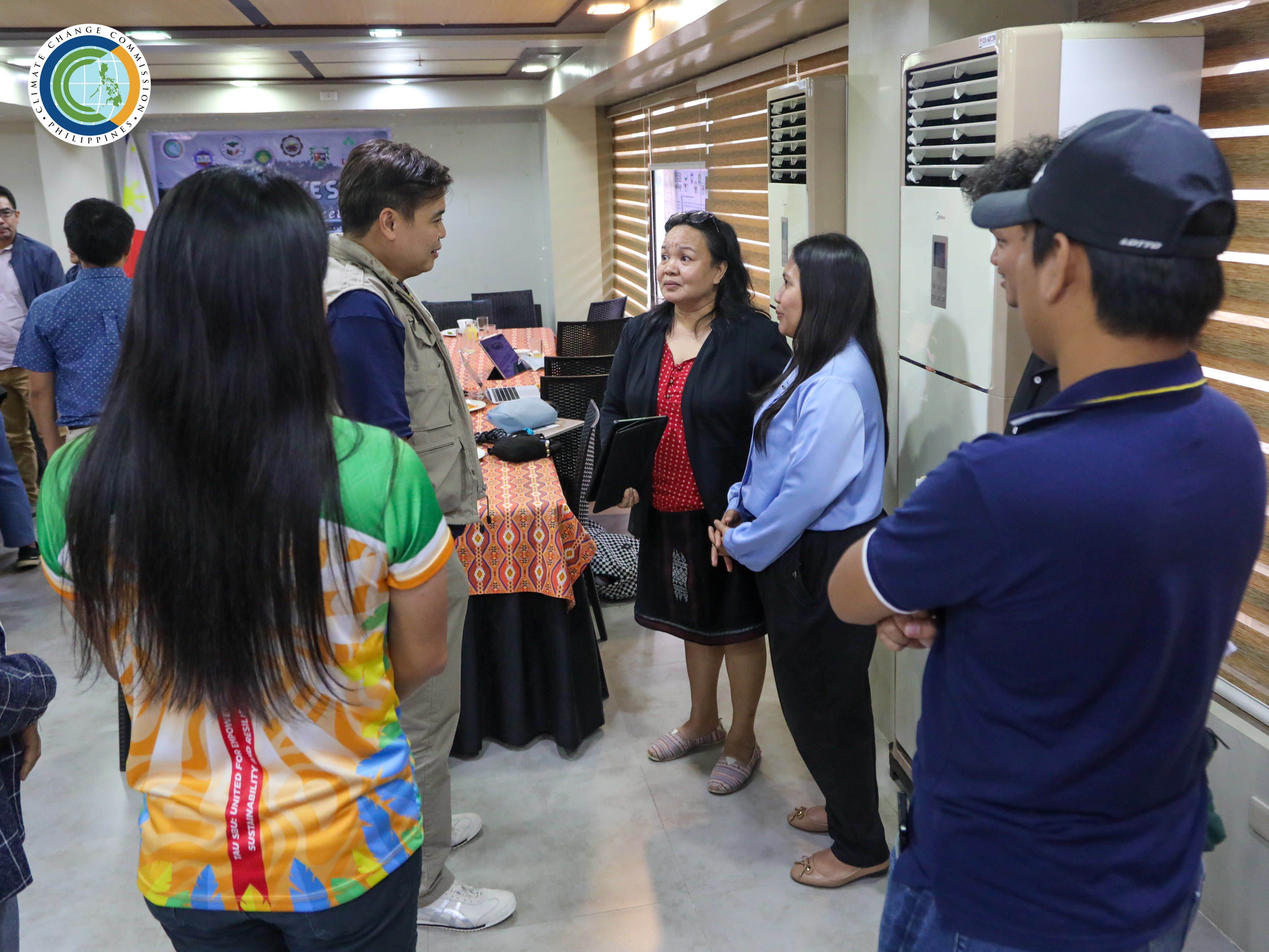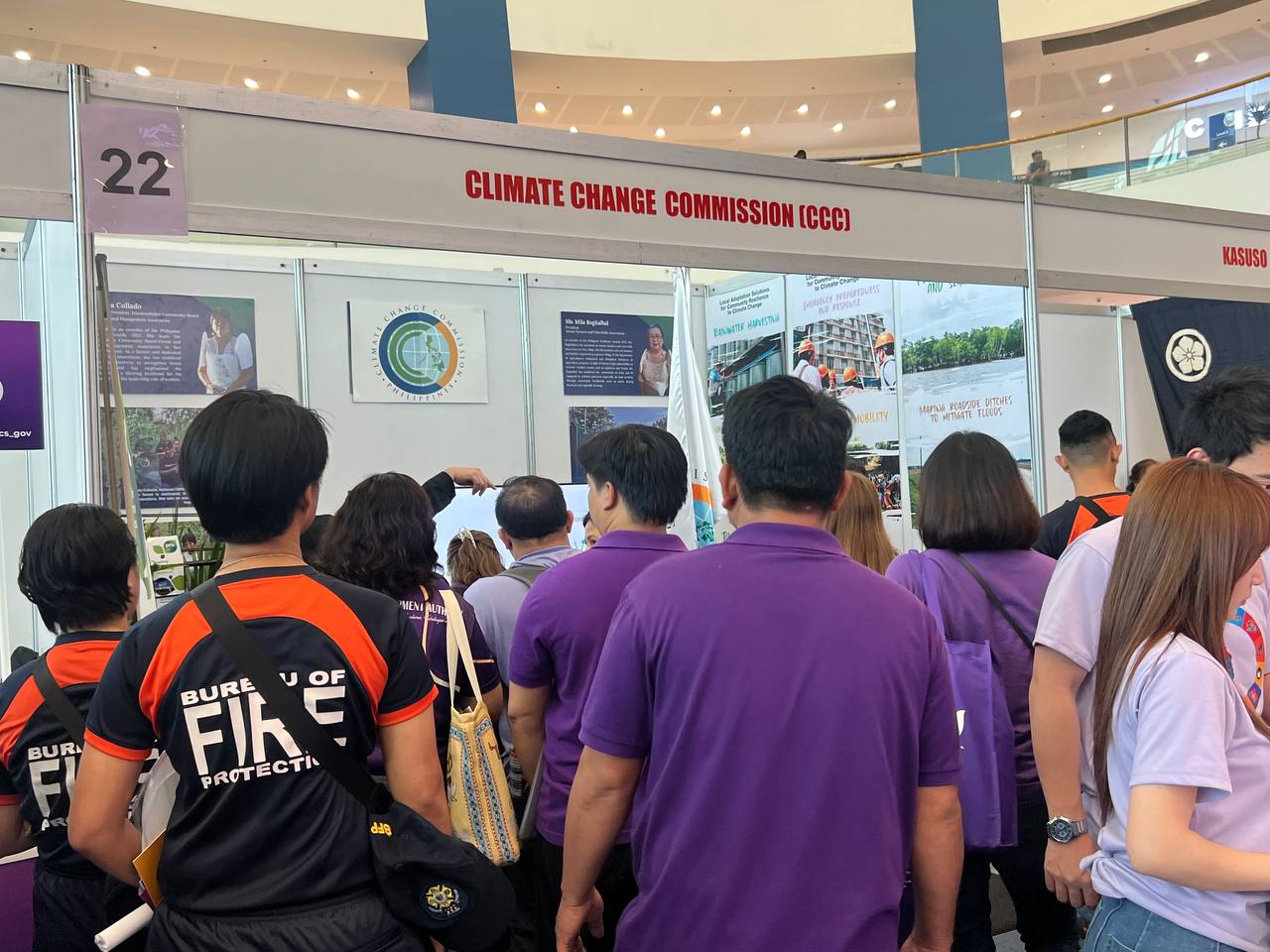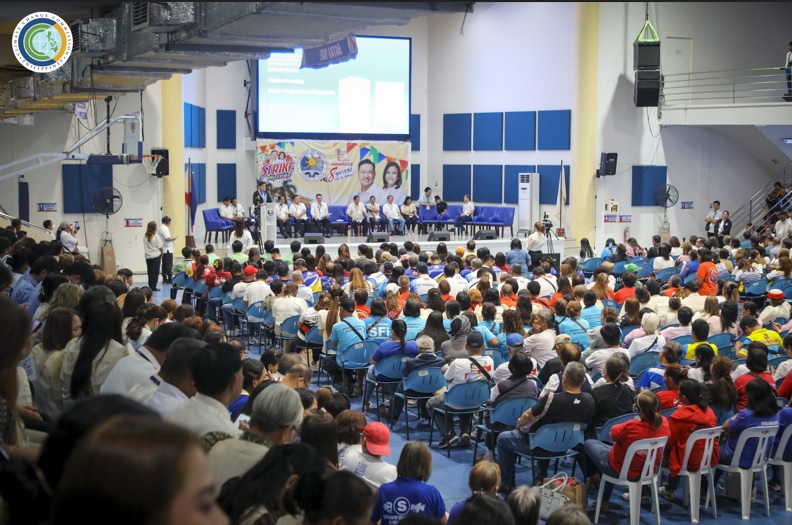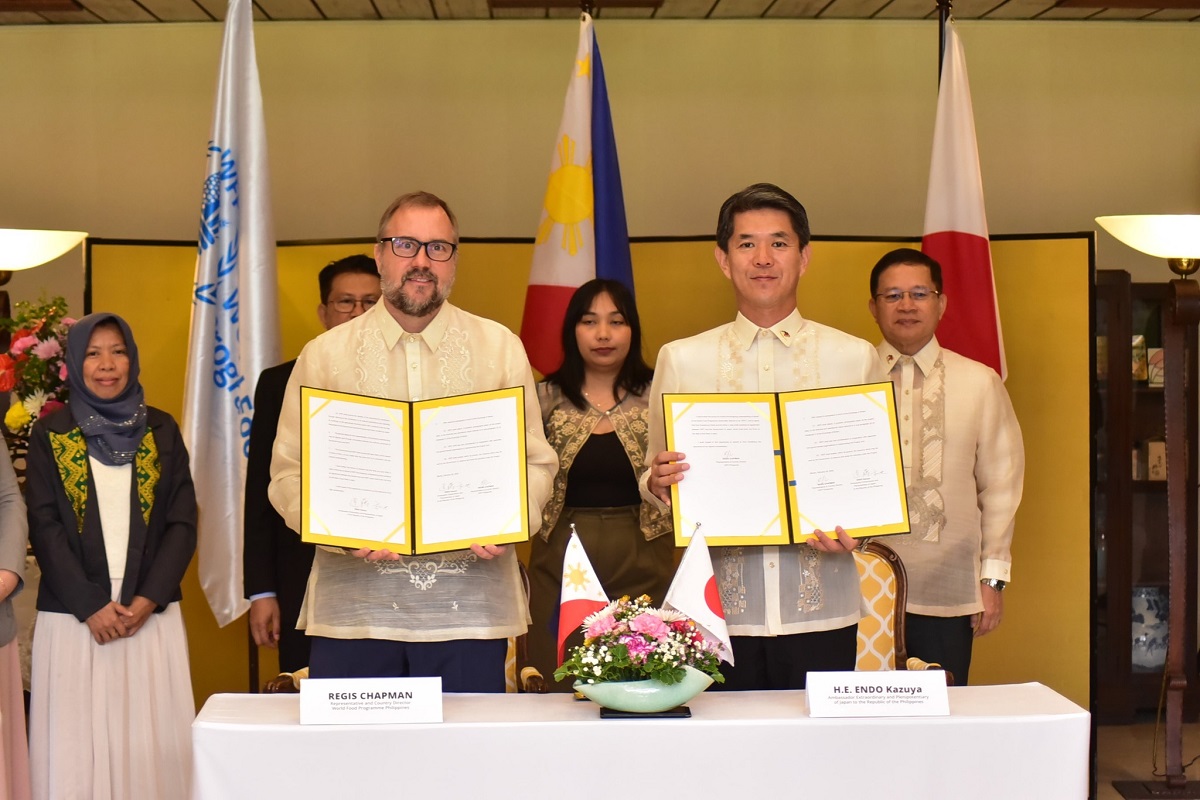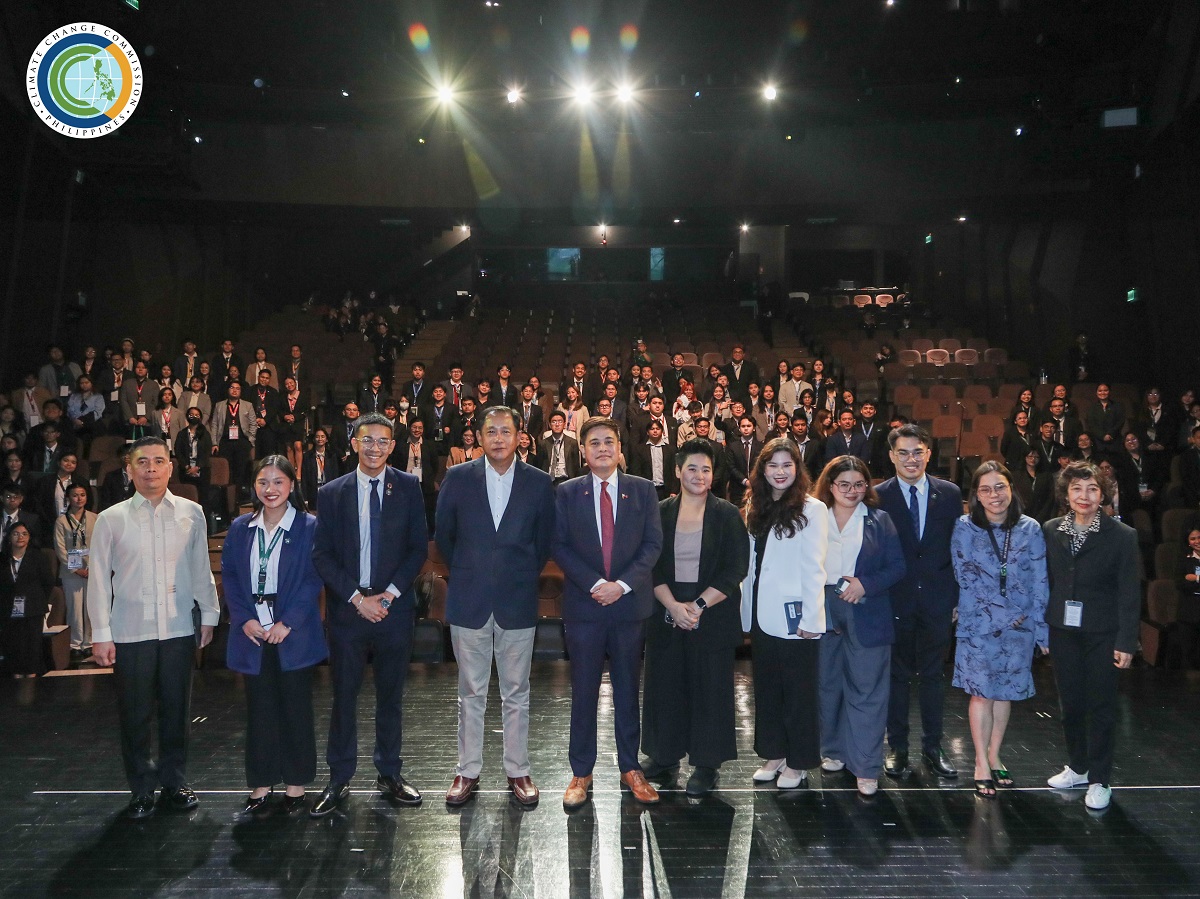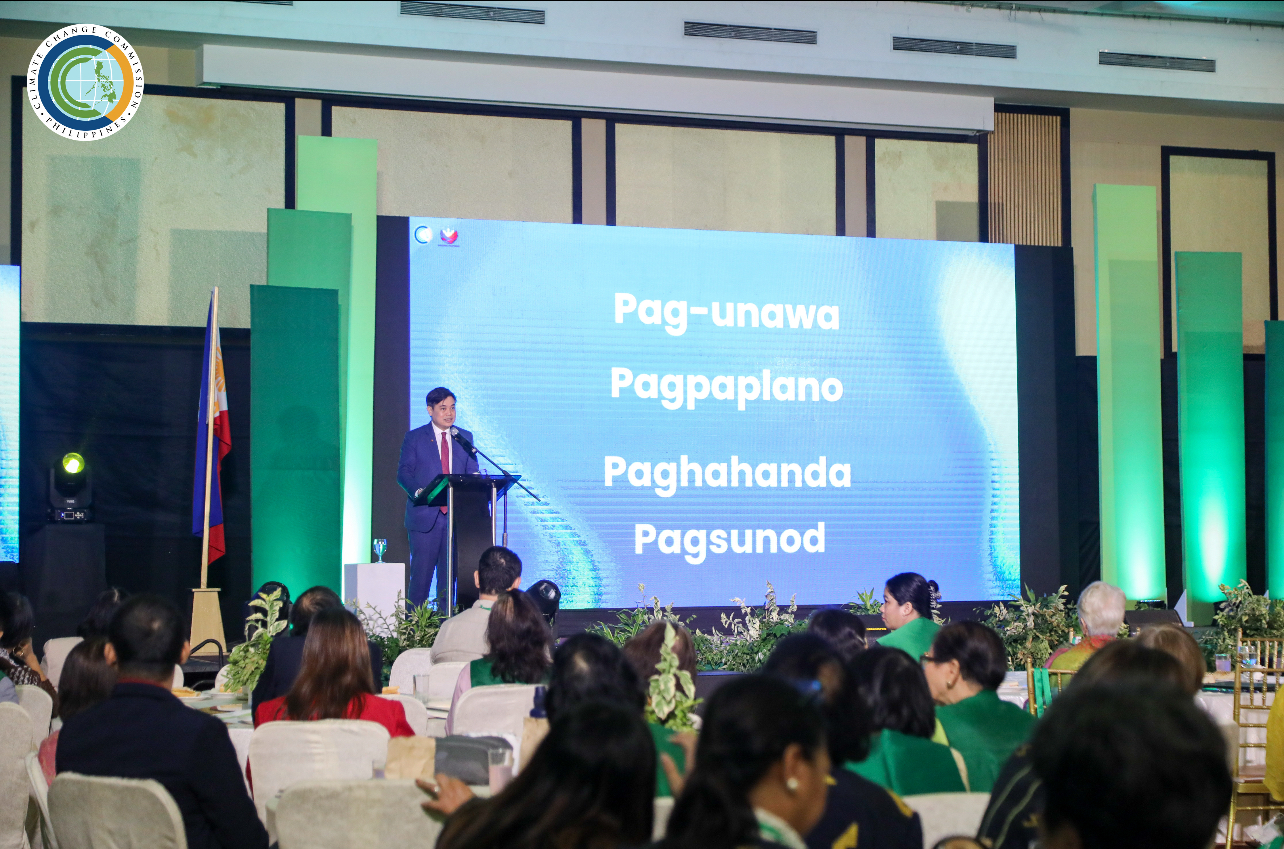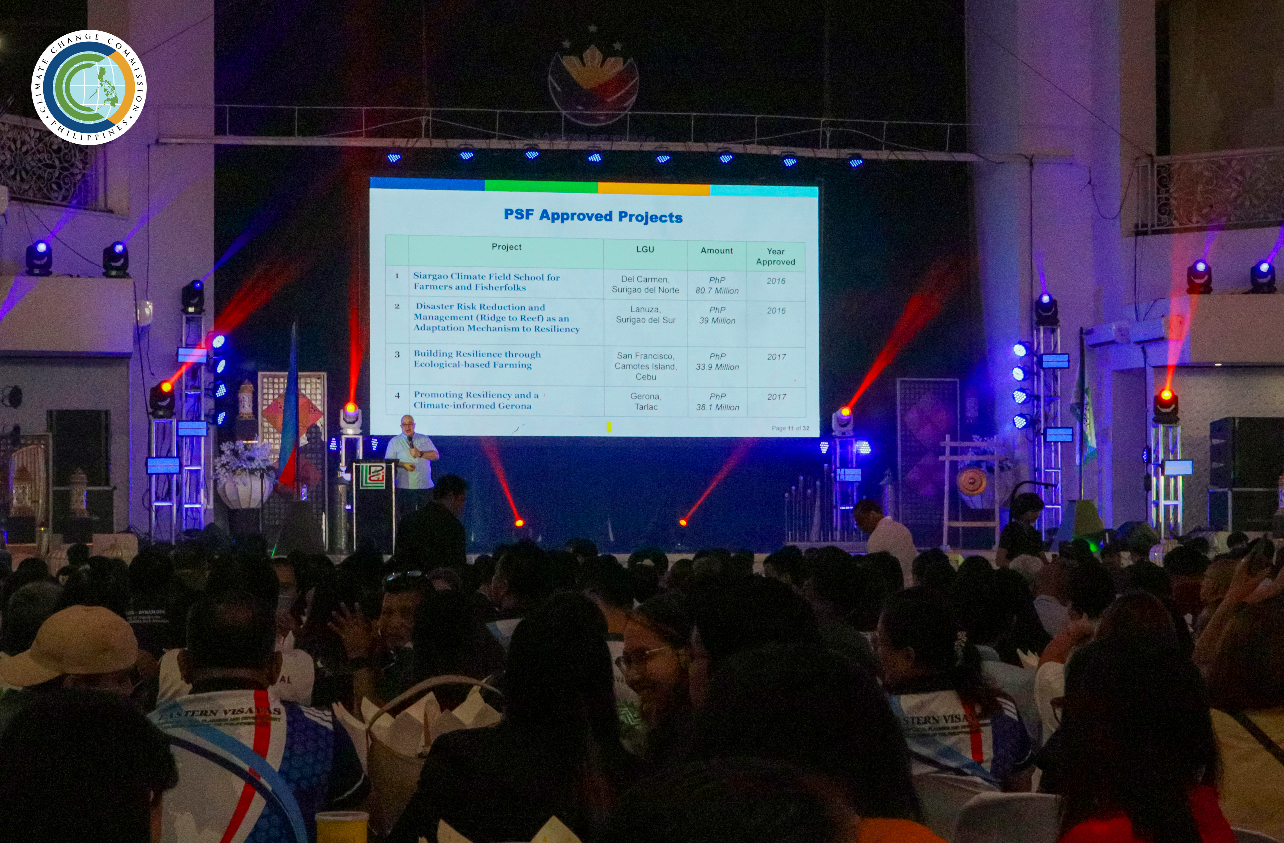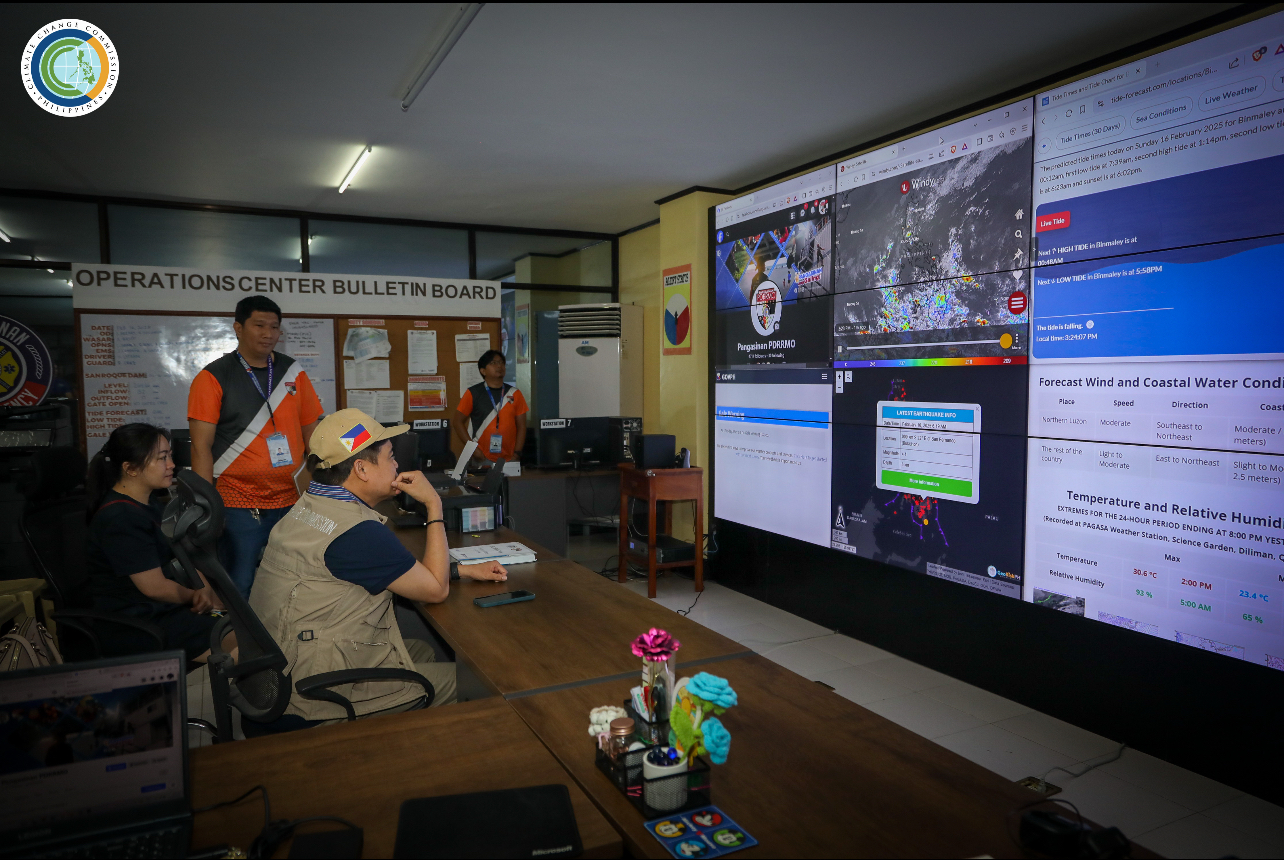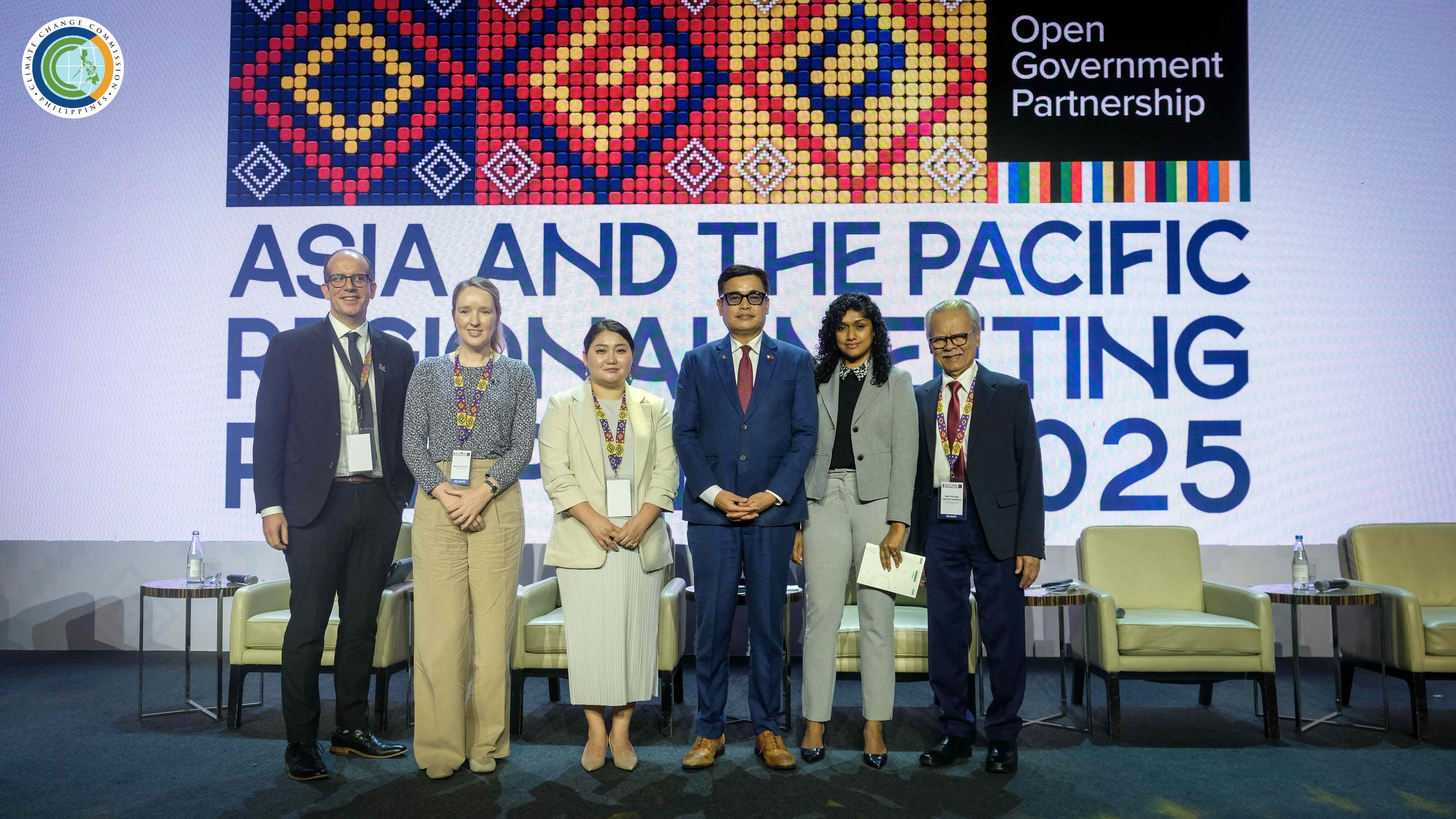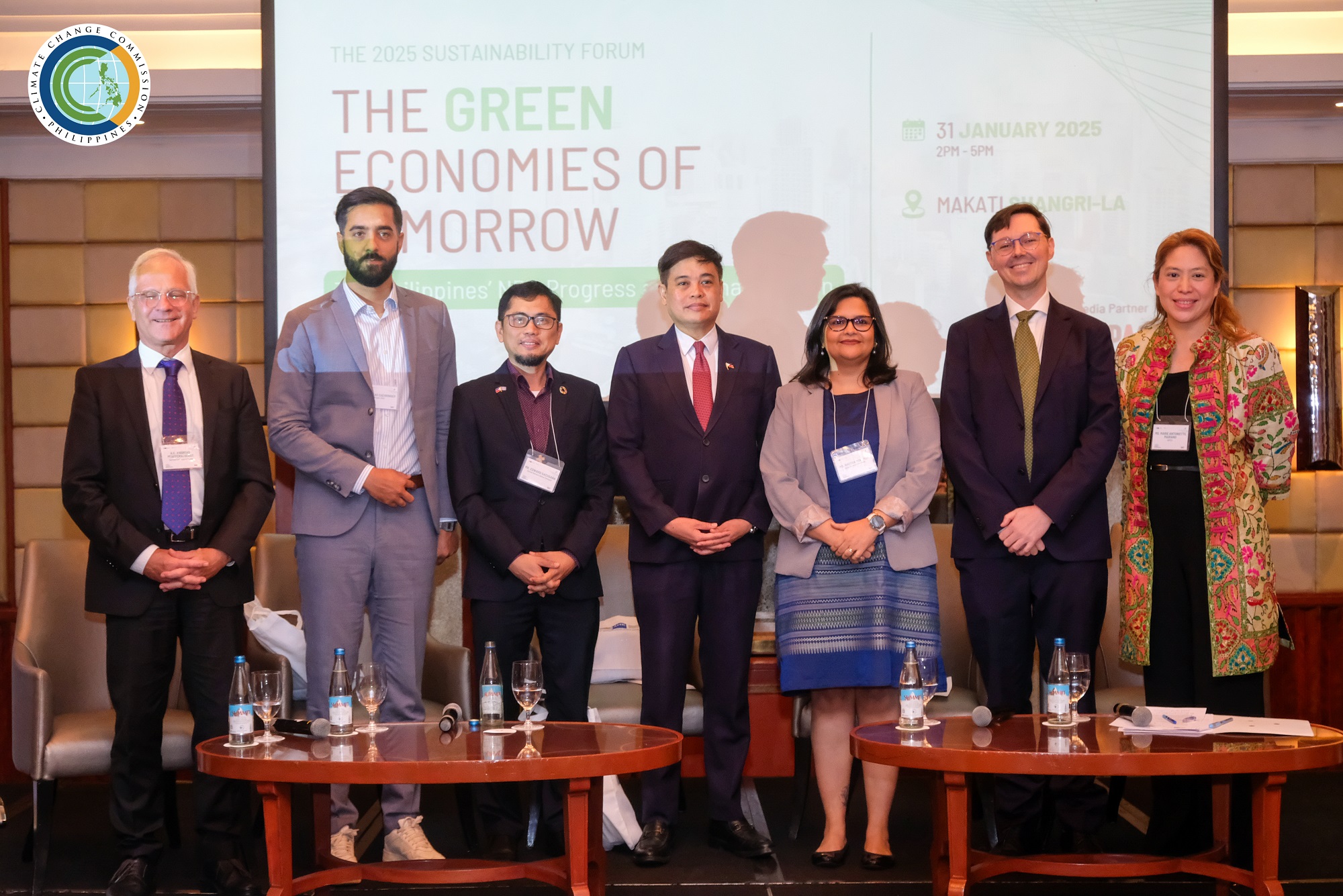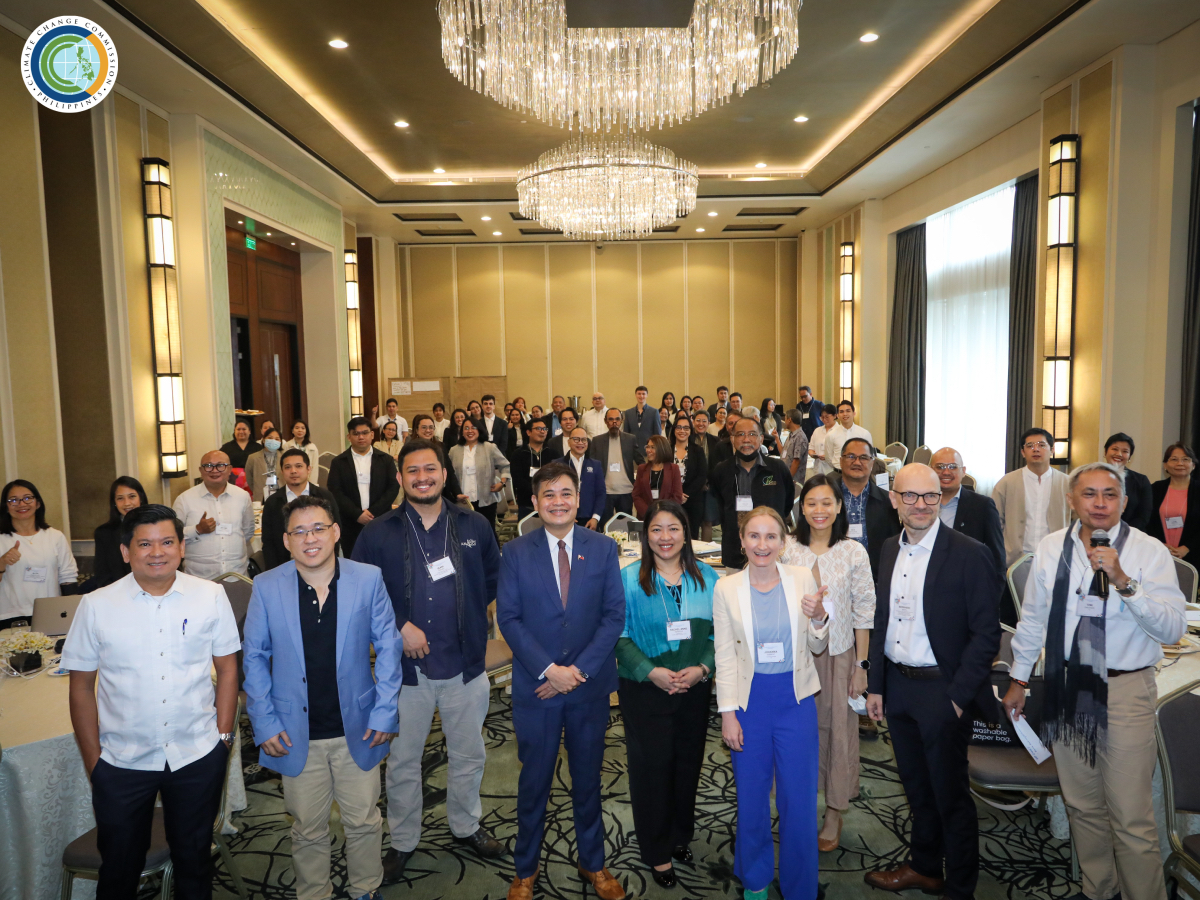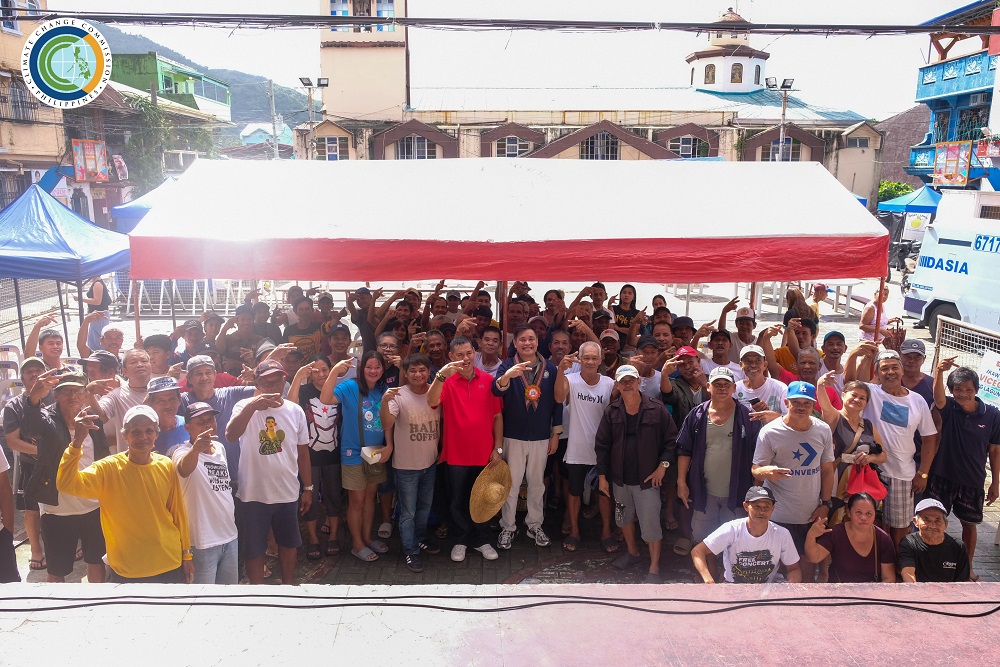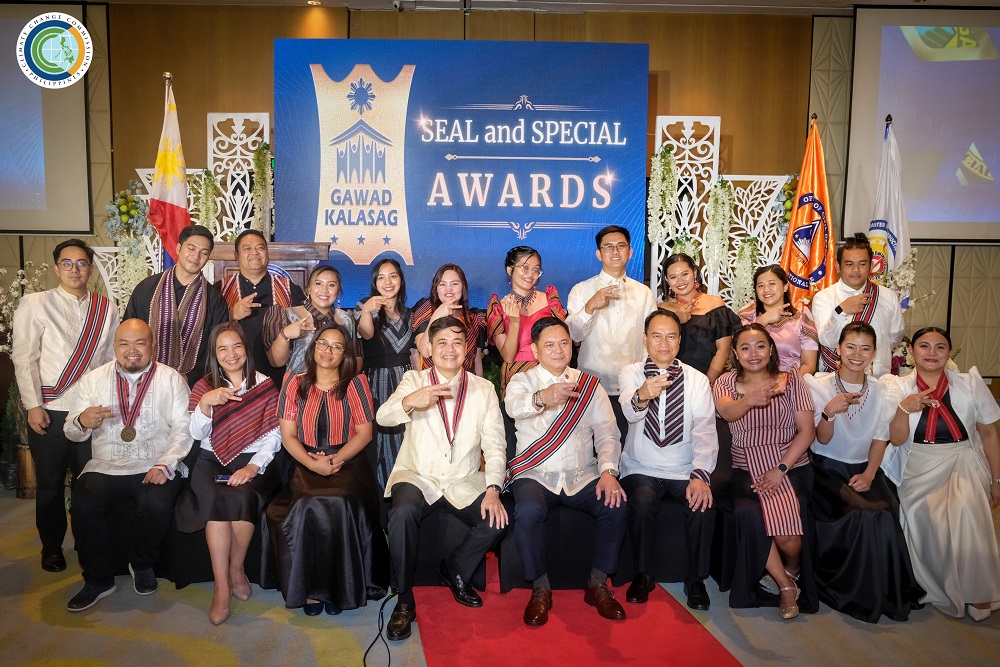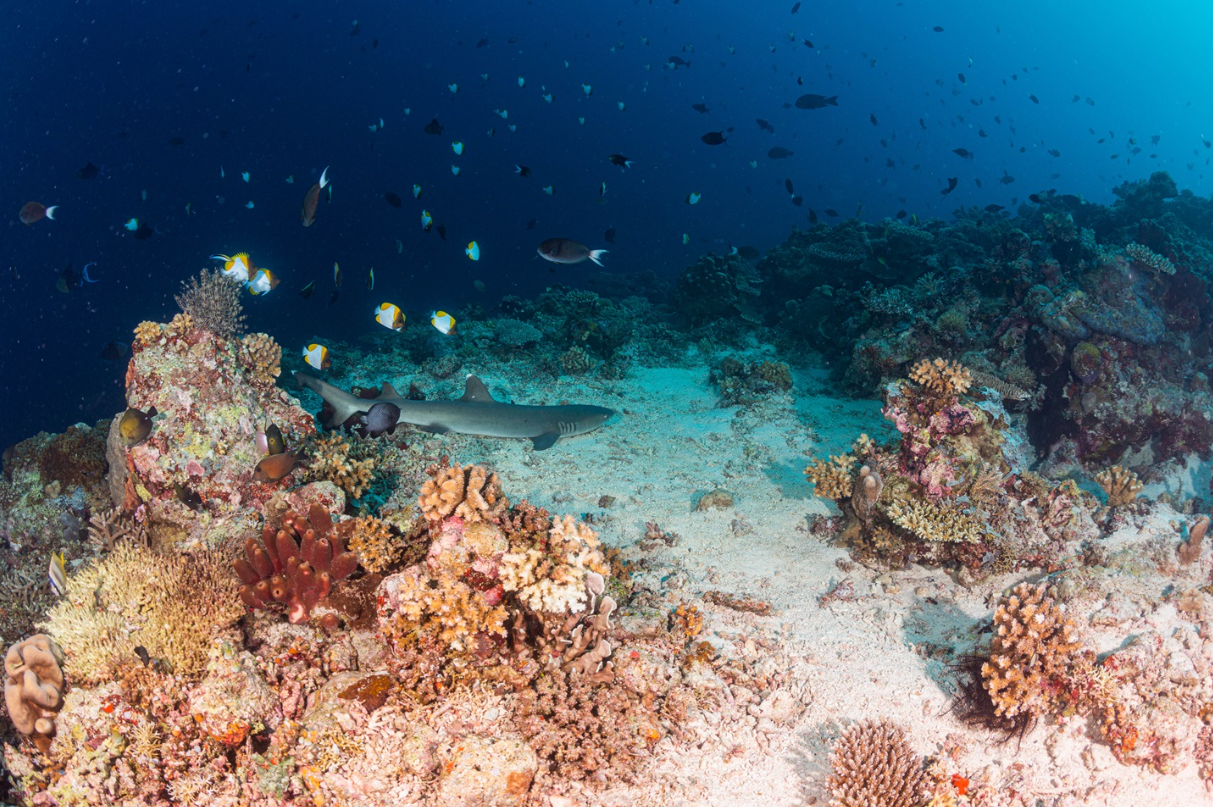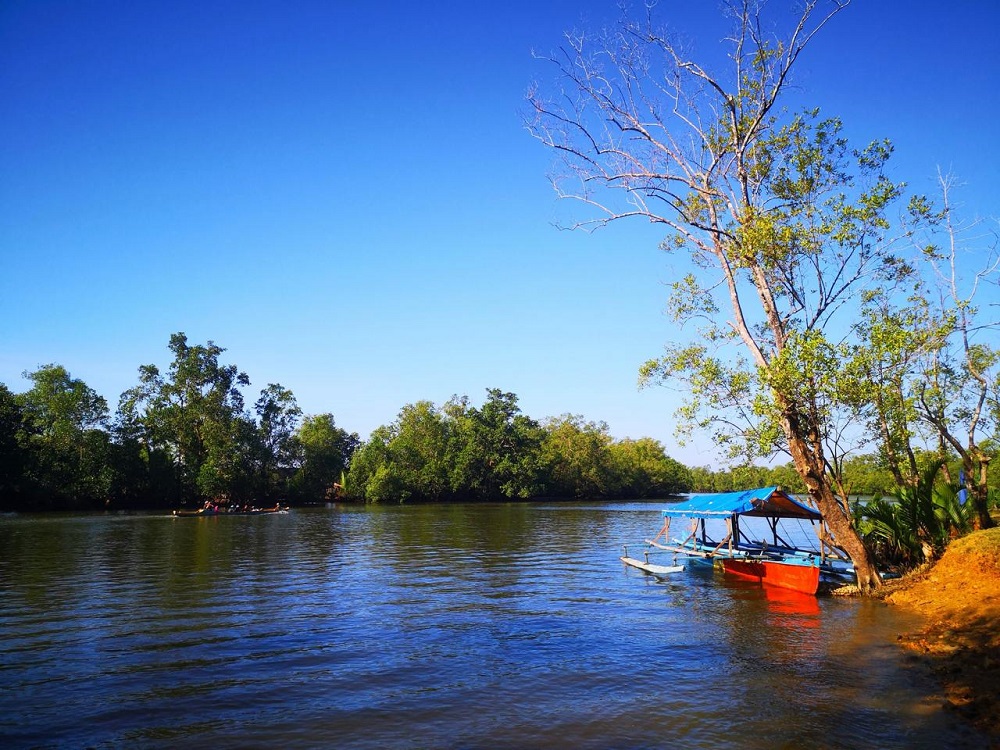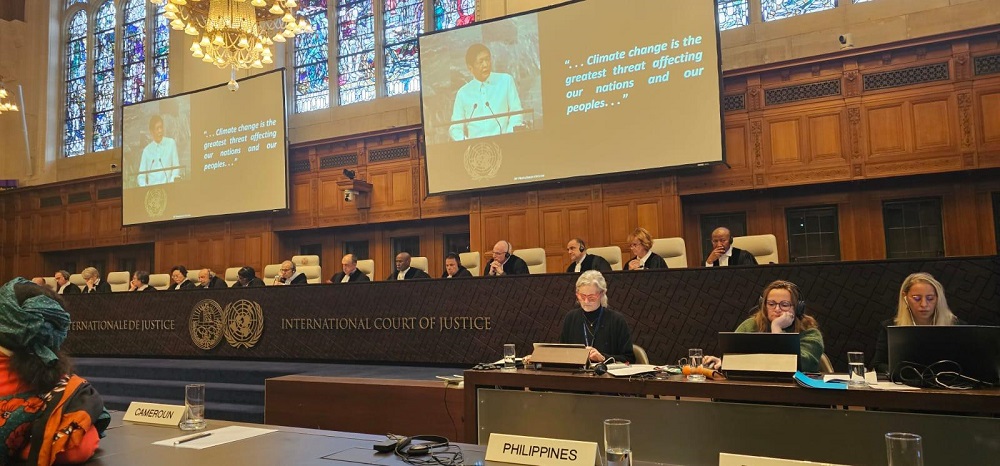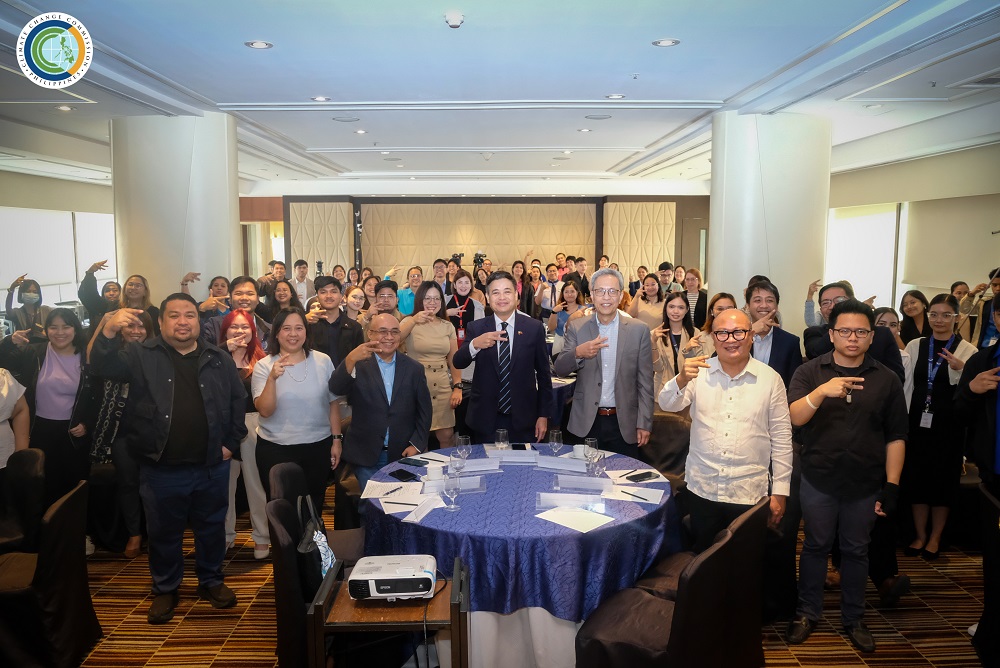The Philippines delivers a statement during the oral proceedings at the International Court of Justice on the request of the UN General Assembly for an advisory opinion on the question of the obligations of States in respect of climate change (Photo from the Philippine Embassy in the Netherlands)
MANILA, 4 December 2024 — The Climate Change Commission (CCC) commended the Philippines' and climate-vulnerable states’ presentation of oral arguments in the public hearings on advisory proceedings before the International Court of Justice (ICJ), underscoring the importance of a robust international rules-based system in advancing transformative climate action and support for climate vulnerable states.
These hearings, taking place from December 2 to 13, 2024 in The Hague, Netherlands, seek to address two key questions involving the obligations of States under international law to ensure the protection of the climate system and other parts of the environment from anthropogenic emissions of greenhouse gases, and the legal consequences for those who have caused significant harm to the climate system and other parts of the environment.
With 97 States and 11 international organizations participating, this is the largest case ever brought before the world court. The ICJ hearings follow the adoption of United Nations General Assembly Resolution 77/276, spearheaded by small island developing States, particularly Vanuatu.
The Philippines, standing in solidarity with vulnerable countries, presented its position in alignment with the broader international call for urgent climate action and justice.
“The reality of extreme weather events, rising sea levels and other adverse effects of warming temperatures around the world, all of which are beyond natural climate variability, requires all of us to take bold and decisive actions,” Philippine Ambassador to the Netherlands Eduardo J. Malaya said.
During the proceedings, Solicitor General Menardo I. Guevarra highlighted the scientific consensus on the alarming rise of global temperatures and the devastating impacts of climate change on vulnerable nations such as the Philippines.
“…This environmental crisis attributed to anthropogenic GHG emissions is surely not experienced in isolation by the Philippines. As we have learned from Vanuatu, the Bahamas, Bangladesh and South Africa, among others, these unusual and unprecedented climate changes have become a global phenomenon,” Guevarra said.
Ambassador Carlos Sorreta, Permanent Representative of the Philippines to the UN, speaking on the UN Charter, human rights, and UNCLOS, emphasized that climate change threatens global peace, security, and human rights. He called on the international community to uphold the principles of international law to address this crisis.
“States are bound to address the climate crisis within a legal framework that maintains peace and security, respects sovereignty, and upholds human rights. Law is essential to ensure a future where all can live with dignity, security, and resilience in the face of a dramatically changing climate,” Sorreta emphasized.
Solicitor General Guevarra further presented the general principles of international law, as well as the Customary International Law (CIL). He emphasized that state obligations to mitigate GHG emissions are not limited to signed treaties but are anchored in universally recognized norms.
He also introduced domestic remedial measures, particularly the Writ of Kalikasan, a judicial remedy that offers legal protection for environmental rights. He noted that this remedy, under the Rules of Procedure for Environmental Cases (RPEC), is the first of its kind globally.
In his concluding statement, Guevarra underscored the binding nature of various legal frameworks: "..The entire gamut of international law informs the obligation of 33 States for their anthropogenic GHG emissions in a manner that is far more encompassing than what has already been achieved by the international community under the climate change regime. Now more than ever, the authoritative guidance of this Court is being sought to express in no uncertain terms that the contributory conduct of States in relation to climate change is bound by established conventions, customary law, and general principles."
The Climate Change Commission (CCC) affirmed that the Philippines’ statement at ICJ reflects the core considerations of historic anthropogenic GHG contributions, climate justice, transboundary impacts, intergenerational equity, and the need for urgent interventions.
The Philippines’ position is rooted in fundamental principles of international law, and it is not confined to specific treaties. It draws upon well-established norms, including those enshrined in the Philippine Constitution and domestic legal remedies such as the Writ of Kalikasan.
The CCC reiterated that the country’s stance aligns with its long-standing principles in international climate negotiations, by advocating for the interests of highly vulnerable communities in the face of climate change.
“Underscoring UNCLOS and international instruments that clarify responsibilities and commitments of States, the Philippines under President Ferdinand R. Marcos Jr., remains a strong voice, arguing for rules-based international system, security and sustainability of the planet and respect for human rights amid a climate crisis. The CCC is honored to be part of the inter-agency and one-country-team approach led by the Office of the Solicitor General in the development of the Philippines’ position,” CCC Vice Chairperson and Executive Director Robert E.A. Borje said.
The ICJ’s advisory opinion will play a crucial role in shaping future global climate policies, reinforcing the collective duty of States to protect the environment for present and future generations. UN Secretary-General António Guterres emphasized that the opinion could guide stronger climate action and ensure accountability among States.
As the world awaits the ICJ’s opinion, the Philippine government, through the CCC, remains committed to support this process by working with local and international partners to strengthen climate action and advocating for legal clarity and justice on behalf of vulnerable communities worldwide.
December 04, 2024 Wednesday

